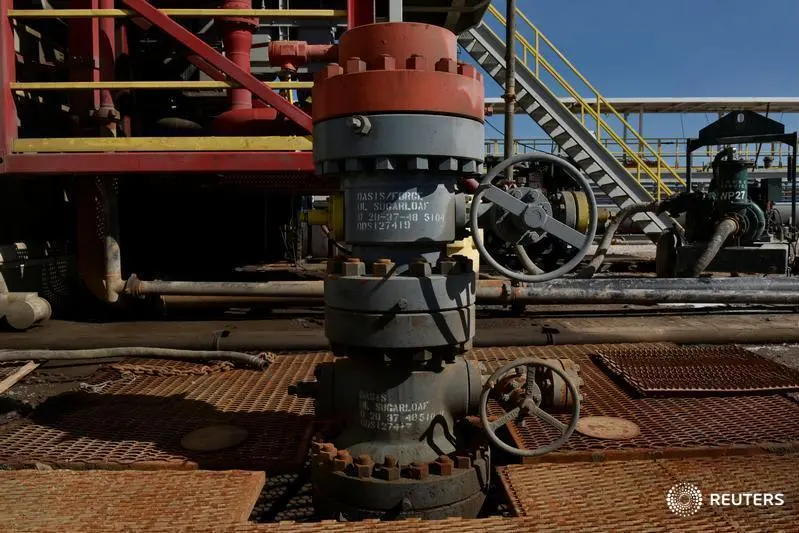PHOTO
LONDON- Oil traders have become much more concerned in recent weeks about the potential impact of U.S. sanctions on Iran and the effect on the availability of crude at the end of the year.
Brent futures for November have moved to a premium of 45 cents a barrel over the December contract, in a sharp reversal from early last month, when the earlier contract traded at a 20 cent discount.
The gyrations in the futures curve are linked closely to traders’ perceptions of the availability of seaborne crude once sanctions are re-imposed from early November.
The November-December calendar spread moved into an increasing premium (backwardation) between July 2017 and May 2018, reflecting the overall tightening of the oil market.
Rapid growth in consumption, output restraint by OPEC and its allies as well as unexpected disruptions to production in Venezuela and some African countries all helped to reduce excess oil inventories.
The U.S. decision to re-impose sanctions on Iran’s exports from early November contributed to a forecast tightening of the market, pushing the Nov-Dec spread to a premium of more than 50 cents in early May.
But the calendar spread subsequently collapsed as OPEC, led by Saudi Arabia, and its non-OPEC allies, led by Russia, started to increase production from May onwards.
For a short period, in late July and early August, the Nov-Dec spread was trading at a small but significant discount (contango) consistent with plentiful availability of oil at the end of the year.
In recent weeks, however, the spread has tightened again, amid signs that output from the Permian Basin in Texas is levelling off and that Saudi Arabia is raising production more slowly than expected.
Traders have become much more cautious about crude availability late this year, reflected in a rise in spot oil prices, tighter calendar spreads and an increase in bullish hedge fund positioning in crude futures.
Concerns about crude availability have been exacerbated by signs that the threatened re-imposition of sanctions is already having an impact on Iran’s exports, even before the secondary embargo formally goes into effect.
For the moment, traders are more concerned about a shortfall in crude availability as a result of sanctions and the stagnation of U.S. drilling than they are about a slowdown in the global economy hitting growth in oil consumption.
THREE-WAY DANCE
The sharp movements in the spread point to the complicated three-way dance between the White House, Saudi Arabia and hedge fund managers over Iran sanctions and oil supplies.
The White House wants tough sanctions but is anxious to maintain crude availability and avoid being blamed for a rise in fuel costs, especially in an election year.
Saudi Arabia supports a tough policy on Iran and has promised to make up any shortfall in oil supplies, but it does not want to risk oversupplying the market and provoking a renewed drop in prices.
Hedge fund managers, in turn, are betting supplies will fall and prices rise as Saudi caution trumps White House pressure for steady or lower fuel costs.
Someone must be miscalculating.
If the market tightens as much as traders currently expect, the White House will be faced with a rise in prices it has tried hard to avoid.
Rising prices may matter less after election day on Nov. 6, but they are likely to remain unwelcome at any time and will expose both the White House and Saudi Arabia to criticism for poorly executed policy.
If, on the other hand, the White House and Saudi Arabia manage to keep the market plentifully supplied even as sanctions go into effect, Brent spot prices and calendar spreads are likely to come under renewed pressure.
And hedge fund managers are likely to liquidate some of the new bullish positions they have established since late last month, intensifying downward pressure on spot prices and spreads.
The oil market outlook now depends on whether the United States and Saudi Arabia can successfully implement their sanctions policy without disrupting global oil supplies.
Most oil traders are betting they will fail and leave the market at least moderately short of crude.
(Editing by David Goodman) ((john.kemp@thomsonreuters.com; +44 207 542 9726 and on twitter @JKempEnergy))





















